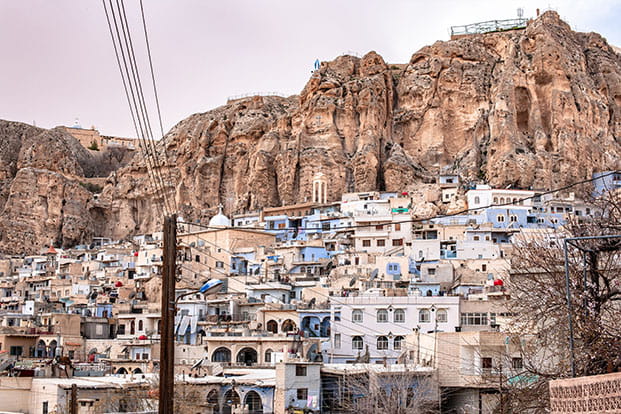
This month's security bulletin focuses on:
- Israel/Palestine – Gaza Strip
- Iran/Iraq
- Abu Bakr al-Baghdadi
- Venezuela
The four areas covered below are by no means exhaustive, but rather areas that I feel are of some interest and worthy of some discussion.I have left out a number of incidents/situations (the attack on a tourist bus by the Pyramids in Giza on 19 May for example) that people may feel merit inclusion. The areas I choose to cover are things that I feel are especially significant or out of the ordinary.
Israel/Palestine – Gaza Strip
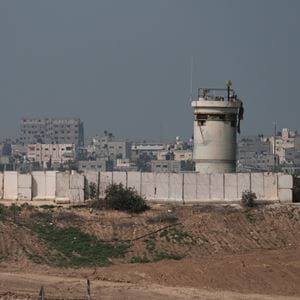
The last sustained period of troubles between Israel and militants based in the Gaza strip was in the summer of 2014 when over 4,500 rockets and mortars were fired over a seven week period by Hamas into Israel and the Israeli Defence Forces carried out numerous air sorties culminating in a ground offensive to destroy tunnel networks in Gaza. The severity of the situation included a NOTAM being issued by the US FAA banning flights from landing at Ben Gurion airport because of the danger.
Over the weekend 3 – 5 May over 600 rockets were launched from Gaza into Israel, following an Israeli airstrike that was in itself in retaliation to two Israeli Defence Forces (IDF) soldiers being injured by sniper fire.
Of particular interest was the report from the IDF that it prevented a cyber-attack by Hamas and had responded with an airstrike on the building where the attack allegedly originated from. This appears to be the first known time that a cyber-attack has been met with real time, real world reaction in an ongoing battle. An interesting development to watch as the ramifications from this work themselves out.
Whilst a ceasefire was announced on Monday 6 May the issues causing tension have not gone away and the possibility of further rocket attacks remains.
Travellers to Israel should ensure that they are fully briefed on the prevailing situation and have flexible tickets and are prepared to leave at short notice. Israel has comprehensive civil emergency procedures, travellers should familiarise themselves with these as well as the locations of the nearest shelters, especially if travelling to areas close to Gaza. Various apps are available, including one called “Home Front Command” released by the IDF, which will alert users of potential emergencies.
Abu Bakr al-Baghdadi’s re-emergence
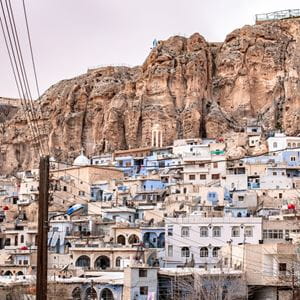
The video released on 29 April showing Abu Bakr, the leader of so called Islamic State (IS) is the first public glimpse of him for almost five years, during which time both the US and Russia have claimed to have killed him in air raids or drone strikes. Al-Baghdadi is seen discussing various events, such as the loss of IS territory in Bahquz Fawqani and the overthrow of the Sudanese and Algerian Presidents. He is also heard off camera talking about the Sri Lanka Easter bombings, suggesting the video was produced around a week prior to release. Whilst IS have been arguably conventionally defeated the re-emergence of al-Baghdadi reminds us that they still have support across the world and that there remains a desire to conduct asymmetric style attacks. By addressing followers after such a long absence and the fall of his proclaimed caliphate al-Baghdadi may well be hoping to inspire lone wolf attacks as well as reassuring allies in other parts of the world.
Travellers and those with responsibility for travel decisions should confirm that they are happy with arrangements for travel to countries with Islamic Extremist elements, where activity may increase as a result of al-Baghdadi’s message. Of immediate concern for example is Burkina Faso where violence had already been increasing.
Iran/Iraq
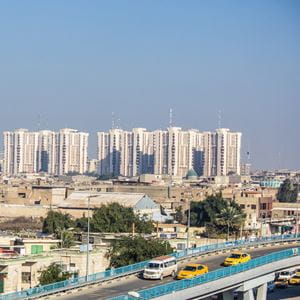
The developments surrounding Iran continue apace with the deployment of a US carrier group to the region and the subsequent withdrawal of all non-emergency staff from Baghdad. The US has taken these steps in response to what it sees as the increasing belligerence of Iran – attributing the attacks on Sunday 12 May against four oil tankers in the Strait of Hormuz to elements that received “blessing” from Iran. Combined with intelligence showing Shia, Iranian backed militias positioning rockets near to US compounds and drone attack against oil pumping stations in Saudi the situation suggests that Tehran is moving slowly towards a showdown. Indeed some of the US’s concerns seem to have been borne out with a rocket attack on Sunday 19 May, impacting in the green zone close to the US embassy.
The dangers of either a proxy conflict in Iraq or a more conventional war could directly impact travel in the region. Indeed some consequences are already being seen as on Saturday 18 May ExxonMobil evacuated foreign staff from oil fields near Basra in the south of the country.
It is also worth noting the advice from the British Government that dual UK/Iranian citizens do not travel to Iran at present due to the risk of being implicated in espionage, more evidence of the heightened tensions in the region.
Travellers to the area should ensure that they keep abreast of developments and have robust contingency plans in place (including escalation triggers, communications and shelter in place arrangements).
Venezuela
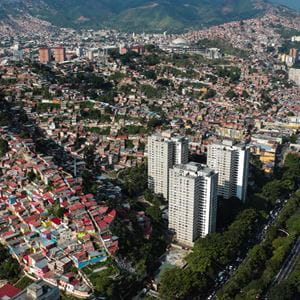
Whilst not a top destination for travel these days, the recent developments in Venezuela are of some interest. On 30 April Juan Guaido, the National Assembly President announced (via video filmed outside a military airbase) that the final phase for the removal of President Nicolas Maduro had begun. He was joined by people in military fatigues and the opposition leader Leopoldo Lopez who had escaped house arrest. Several days of unrest and protest followed but ultimately the military by and large remained loyal to Maduro. By 7 May it was clear that the existing stalemate continued, with Maduro remaining largely in control of the country but the popular and international support that Guaido enjoys allows him to continue to operate. There have been indications that Russia’s (and China’s) support for Maduro may be malleable if they can be convinced of the security of their financial assets in the event of a regime change. The US continue to state that “all options are on the table” however this likely remains a tactic to pressure the Venezuelan military to support Guaido.
Travel to Venezuela, such as it is, can continue (with all existing restrictions and controls) – however it is very important to have clearly thought out escalation triggers and a vigorous method of implementing contingency plans if triggers are met. Travellers should consider their communications, evacuation and shelter in place plans.







